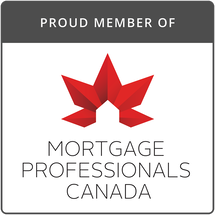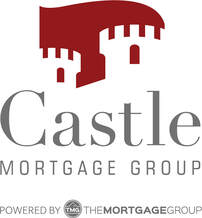What Is The Difference Between A Fixed, Variable, And Adjustable Mortgage Rate?
|
A fixed mortgage rate is one where the interest rate stays the same (is fixed) for the entirety of the term you choose. Fixed mortgage rates are available in 1, 2, 3, 4, 5, 7 & 10 year terms.
The interest rate on a variable or adjustable mortgage is subject to change. If the Bank of Canada decides to adjust interest rates, then those who have a variable or adjustable mortgage rate will experience a rate change on their mortgage. (Read the question below this one for an explanation on how that works). The main advantage of fixed mortgage rates is the fact that the borrower is safe from any rate increases during the term they choose which makes financial planning much easier. One disadvantages to fixed mortgage rates is that if interest rates decrease, you may be stuck paying your higher interest rate for the duration of your term. You may be able to switch from one fixed rate mortgage to another one with a lower interest rate but there would be some costs involved. Depending on what the costs are and what interest rate options you have available to switch to, it may not make sense to make the change. |
Another disadvantage to fixed mortgage rate is the way penalties are calculated if you needed to break the mortgage contract early (before the maturity date). In many cases, the penalties on fixed rate mortgages are higher than the penalties charged when breaking a variable or adjustable rate mortgage contract.
Visit my mortgage penalties page to learn more about the different penalty calculation methods that Lenders use.The main advantage to variable/adjustable mortgage rates is that they are flexible.
If it looks like interest rates could be going up, you can lock your variable rate mortgage into a fixed rate at any time. You don't get to lock in to the rate you're currently paying, you get to lock in to whatever rate your Lender is offering you at the time on the term closest to the amount of time remaining on your mortgage contract with them. So, for example, if you are 2 years in to a 5 year adjustable rate mortgage, you will be able to lock in to whatever your Lender is offering on a 3 year fixed rate term. There is no fee or penalty to doing this.
Also, if you ever need to break a variable or adjustable rate contract early, the penalty you pay will only ever be calculated at 3 months interest, which is very reasonable when it comes to mortgage penalties.
In a "normal" interest rate environment, variable/adjustable mortgage rates are usually lower to begin with than fixed rates. This is another advantage to this type of mortgage. There have been occasions (the time I'm writing this being one of those times) where variable rates are actually higher than fixed rates to begin with which lessen the appeal of this type of interest rate.
The disadvantage to variable/adjustable rate mortgages is of course the risk of the interest rate increasing. However, as I mentioned earlier, you always have the option of locking in your rate if you feel like rates are going up.
Visit my mortgage penalties page to learn more about the different penalty calculation methods that Lenders use.The main advantage to variable/adjustable mortgage rates is that they are flexible.
If it looks like interest rates could be going up, you can lock your variable rate mortgage into a fixed rate at any time. You don't get to lock in to the rate you're currently paying, you get to lock in to whatever rate your Lender is offering you at the time on the term closest to the amount of time remaining on your mortgage contract with them. So, for example, if you are 2 years in to a 5 year adjustable rate mortgage, you will be able to lock in to whatever your Lender is offering on a 3 year fixed rate term. There is no fee or penalty to doing this.
Also, if you ever need to break a variable or adjustable rate contract early, the penalty you pay will only ever be calculated at 3 months interest, which is very reasonable when it comes to mortgage penalties.
In a "normal" interest rate environment, variable/adjustable mortgage rates are usually lower to begin with than fixed rates. This is another advantage to this type of mortgage. There have been occasions (the time I'm writing this being one of those times) where variable rates are actually higher than fixed rates to begin with which lessen the appeal of this type of interest rate.
The disadvantage to variable/adjustable rate mortgages is of course the risk of the interest rate increasing. However, as I mentioned earlier, you always have the option of locking in your rate if you feel like rates are going up.
What's Better...Fixed or Variable?
It totally depends on you and your situation.
If you are really budget conscious and the thought of your mortgage payment increasing causes you to lose sleep at night, then a fixed rate mortgage is probably the right choice for you.
If you can handle a little bit of risk and need some flexibility then an adjustable/variable rate mortgage might be right for you. For example, if you were purchasing a house but you weren't sure how long you were going to keep the property, you might choose a variable rate mortgage so that no matter when you decide to sell, your penalty will be minimal (3 months interest.)
The right choice is very situational dependent. It depends on what your risk tolerance is, what your plan for the property is, what interest rates are like at the time of purchase, etc.
If you are really budget conscious and the thought of your mortgage payment increasing causes you to lose sleep at night, then a fixed rate mortgage is probably the right choice for you.
If you can handle a little bit of risk and need some flexibility then an adjustable/variable rate mortgage might be right for you. For example, if you were purchasing a house but you weren't sure how long you were going to keep the property, you might choose a variable rate mortgage so that no matter when you decide to sell, your penalty will be minimal (3 months interest.)
The right choice is very situational dependent. It depends on what your risk tolerance is, what your plan for the property is, what interest rates are like at the time of purchase, etc.
What Is The Difference Between A Variable And An Adjustable Mortgage Rate?
Variable and Adjustable mortgage rates are both based on the Lender's Prime Lending rate, and therefore subject to change.
However, both types of interest rates act differently when there is a change to the Prime Lending rate.
First, let's talk about the Prime Lending rate and how it changes.
Each major Bank in Canada sets their own Prime Lending rate. They base this rate on something called the "Overnight Rate" (a.k.a. Policy Interest Rate) which is the interest rate, set by the Bank of Canada, that financial institutions can lend money to each other at for one day.
The Overnight Rate is one of the tools that the Bank of Canada uses to control inflation in Canada. Generally speaking, if the economy is struggling, the Bank of Canada will lower the Overnight Rate hoping the lower interest rates will boost the economy. The opposite happens if the Canadian economy is too strong. The Bank of Canada will increase the Overnight Rate with hopes of cooling the economy down.
If the Bank of Canada changes their Overnight Rate, the major Banks will adjust their Prime Lending rate in the same direction soon after that and usually by the same increment.
The Prime Lending rate is the base rate for all variable and adjustable rate mortgages. The interest rate on these types of mortgages are documented as a plus or minus off the Prime Lending rate. For example, at the time of writing this (Dec 2019) the current Prime Lending rate is 3.95% and a common variable/adjustable mortgage interest rate is Prime minus 0.65%...which is equal to 3.30%.
Now, let's get to the difference between variable and adjustable rates.
If you have a adjustable rate mortgage, and the Prime Lending rate changes, not only will the interest rate on your mortgage change but your payment amount will change as well. Your amortization period (the amount of time it will take you to pay off your mortgage completely) will not change.
If you have a variable rate mortgage, and the Prime Lending rate changes, the interest rate on your mortgage will change but your payment amount will not change. Instead, the amount of interest contained within each payment will change. If the interest rate increases, the amount of interest you pay with each payment increases and the amount of principal decreases which means it will take you longer to pay off your mortgage. If the interest rate decreases, then the amount of principal you pay with each payment increases and you will pay off your mortgage sooner.
However, both types of interest rates act differently when there is a change to the Prime Lending rate.
First, let's talk about the Prime Lending rate and how it changes.
Each major Bank in Canada sets their own Prime Lending rate. They base this rate on something called the "Overnight Rate" (a.k.a. Policy Interest Rate) which is the interest rate, set by the Bank of Canada, that financial institutions can lend money to each other at for one day.
The Overnight Rate is one of the tools that the Bank of Canada uses to control inflation in Canada. Generally speaking, if the economy is struggling, the Bank of Canada will lower the Overnight Rate hoping the lower interest rates will boost the economy. The opposite happens if the Canadian economy is too strong. The Bank of Canada will increase the Overnight Rate with hopes of cooling the economy down.
If the Bank of Canada changes their Overnight Rate, the major Banks will adjust their Prime Lending rate in the same direction soon after that and usually by the same increment.
The Prime Lending rate is the base rate for all variable and adjustable rate mortgages. The interest rate on these types of mortgages are documented as a plus or minus off the Prime Lending rate. For example, at the time of writing this (Dec 2019) the current Prime Lending rate is 3.95% and a common variable/adjustable mortgage interest rate is Prime minus 0.65%...which is equal to 3.30%.
Now, let's get to the difference between variable and adjustable rates.
If you have a adjustable rate mortgage, and the Prime Lending rate changes, not only will the interest rate on your mortgage change but your payment amount will change as well. Your amortization period (the amount of time it will take you to pay off your mortgage completely) will not change.
If you have a variable rate mortgage, and the Prime Lending rate changes, the interest rate on your mortgage will change but your payment amount will not change. Instead, the amount of interest contained within each payment will change. If the interest rate increases, the amount of interest you pay with each payment increases and the amount of principal decreases which means it will take you longer to pay off your mortgage. If the interest rate decreases, then the amount of principal you pay with each payment increases and you will pay off your mortgage sooner.





